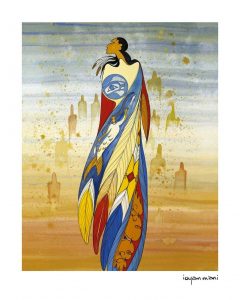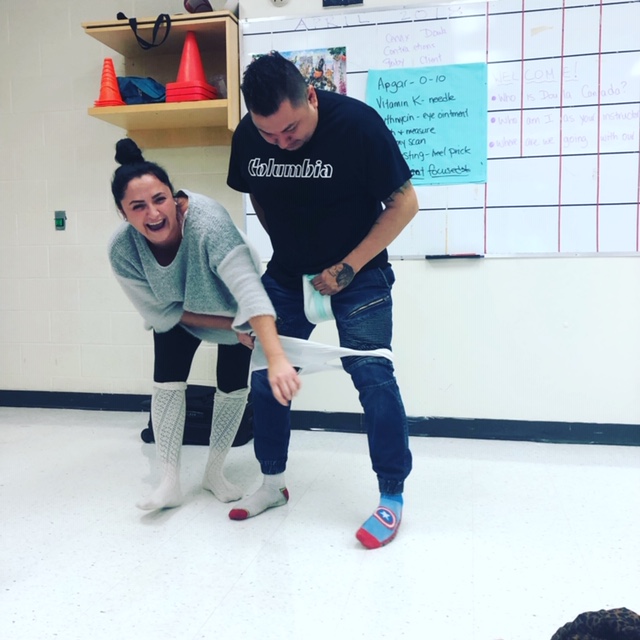[vc_row][vc_column][vc_column_text css=”.vc_custom_1644624893514{margin-bottom: 0px !important;}”]
Fat.
[/vc_column_text][/vc_column][/vc_row][vc_row][vc_column][vc_column_text css=”.vc_custom_1644624846918{margin-bottom: 0px !important;}”]Read the word. Read it once, twice, and then again.
How does reading the word make you feel? How about saying it aloud?
Most of us have learned to treat fat as a bad word and, beyond that, a bad thing to be. We hear this from our friends and our peers, our families, our communities, the media we consume, and the healthcare systems we turn to when we’re unwell. Fat is the punch line of countless jokes, the subject of over 40% of New Year’s resolutions[i], and the fuel of a weight loss industry worth $332.8 million in Canada alone[ii].
Fat people are scrutinized everywhere—in clothing stores that stop at size 14, on airplanes with too small seats, in conversations with relatives that always begin and end with comments on our size. More than anywhere else, you can find this scrutiny in healthcare. “Obesity” is listed as a risk factor for almost everything. Any fat person who has been to a doctor’s office can tell you this. Depressed? Lose weight. Ear infection? Lose weight. Infertility? Lose weight.
When somebody is pregnant, trying to get pregnant, or even just a person between 20-40 with a uterus, their body is monitored in a whole new way. They might be told that their weight will stop them from getting pregnant, that it will cause them to miscarry, that gestational diabetes will be inevitable, that they will need to be induced early, that their baby will be big, and on, and on, and on.
While any of these things might happen to a fat person, they won’t happen because the person is fat. Intentional weight loss is not a magical cure. In fact, dieting could even lead to further issues with conception or pregnancy, where a nutrient-rich diet is important and weight gain is linked to the healthy development of the placenta, fetus, and pregnant person.
Over the past several years, there has been a shift in popular culture towards body positivity. Championed by celebrities and social media influencers, body positivity tells us to embrace and love our bodies (and other people’s bodies) as they are. If this seems like a stretch goal, then we can be body neutral, accepting our body (and other people’s bodies) as they are, as the tools we use to engage with and experience the world. These approaches can feel revolutionary when we’re used to hating our bodies and can absolutely improve our relationships with ourselves, but they aren’t enough.
Sofie Hagan, author of Happy Fat, explains, “I am not a body positivity campaigner, I am a fat liberationist. I do not care if you love your body or not, I care about abolishing the systemic discrimination and abuse that fat people endure on a daily basis. Body positivity is fine, but it doesn’t at all fix the problem.” (Twitter, October 25, 2021).
The problems that Hagan is talking about are systemic fatphobia and sizeism.
Fatphobia tells us that fat bodies are undesirable, unhealthy, and repulsive. It includes fat jokes in the schoolyard and your grandmother telling you how much weight you’ve gained, but also means that fat people are less likely to be hired, less likely to be seen as attractive, less likely to be taken seriously by their medical providers. It doesn’t just make people feel bad, it can be a matter of life or death: when Ellen Maud Bennett died of terminal cancer in 2018, her obituary named fatphobia as the cause, explaining, “Over the past few years of feeling unwell she sought out medical intervention and no one offered any support or suggestions beyond weight loss.”[iii]
Sizeism privileges smaller bodies over larger ones. Not just through beauty ideals but through the systems and structures that we interact with every day. This can include everything from insurance policies that have a body mass index (BMI) cutoff to hospital gowns and beds that don’t fit larger bodies.
To confront fatphobia and sizeism we don’t just need increased confidence in our own bodies, we need a different approach to size and weight.
The health at every size (HAES) movement is pushing medical providers to recognize that people can be healthy at every size, that fat shouldn’t be treated as an illness, that weight loss shouldn’t be treated as a cure, and that there needs to be (literal and metaphorical) room for fat people in our healthcare system. It’s an important movement, but still prioritizes health. Fat people can be healthy or unhealthy, thin people can be too. All of us, regardless of size, will experience variations in our health throughout our lives. We don’t owe anybody good health, and we don’t need to be healthy to deserve respect.
We need fat positivity: a mental and systemic shift that includes and embraces fat bodies, regardless of health. [/vc_column_text][vc_separator color=”white”][/vc_column][/vc_row][vc_row][vc_column][vc_column_text css=”.vc_custom_1644624383626{margin-bottom: 0px !important;}”]So, as a doula, how can you provide fat positive support?[/vc_column_text][vc_column_text css=”.vc_custom_1644624485528{margin-bottom: 0px !important;}”]1. Don’t ask about or comment on your client’s weight.[/vc_column_text][vc_column_text css=”.vc_custom_1645143545782{margin-bottom: 0px !important;}”]2. If your client asks about how being fat will impact them during conception, pregnancy, or birth, share evidence-based information and resources that are size inclusive.[/vc_column_text][vc_column_text css=”.vc_custom_1644624540161{margin-bottom: 0px !important;}”]3.Support your client through their healthcare experiences. If your client is worried about weight checks, let them know that they have a right to refuse or to ask why they are being weighed. If they are worried about whether a hospital or birth centre will accommodate them (from weight limits on hospital beds to BMI limits on epidurals), contact the birth location to find out.[/vc_column_text][vc_column_text css=”.vc_custom_1644624580474{margin-bottom: 0px !important;}”]4. Provide emotional support, recognizing the trauma that many fat people have experienced in healthcare. Your client might feel anxious, avoidant, or upset when having to interact with healthcare providers or entering doctors’ offices or hospitals. Validate these feelings.[/vc_column_text][vc_column_text css=”.vc_custom_1644624610152{margin-bottom: 0px !important;}”]5. Recognize that everything from common birth support positions to equipment like birth balls or birthing pools haven’t been made with fat people in mind. Consider in advance how to adapt your support to include fat bodies. If your client is comfortable, this can include practicing support positions to see how they feel for you and your client, as well as any other support people involved.[/vc_column_text][vc_column_text css=”.vc_custom_1644624639055{margin-bottom: 0px !important;}”]6. Examine your own biases. We grow up in a fatphobic and sizeist world, and internalize these beliefs from a very young age. Ask yourself what you think and feel about fat bodies, then ask yourself why. This is hard, ongoing, and crucial work.[/vc_column_text][vc_separator color=”white”][/vc_column][/vc_row][vc_row][vc_column][vc_column_text css=”.vc_custom_1645287465765{margin-bottom: 0px !important;}”]Fat people deserve to have our pregnancies and births treated with respect and care. We deserve health systems that see us as whole people and not as problems. We deserve to have our strength and capacity recognized. We deserve partners, healthcare providers, and doulas who support, affirm, and hold us as we are.
Interested in learning more? Sign up for Doula Canada’s webinar on Addressing Sizeism and Fatphobia in Birth Work, happening on February 27th from 12:30pm-1:30pm EST.[/vc_column_text][vc_separator color=”white”][vc_btn title=”Click here to register for our FAT: ADDRESSING SIZEISM AND FATPHOBIA IN BIRTHWORK webinar” color=”mulled-wine” align=”center” link=”url:https%3A%2F%2Fstefanie-techops.wisdmlabs.net%2Ftraining%2Ffat-addressing-sizeism-and-fatphobia-in-birthwork%2F|||”][vc_separator color=”white”][/vc_column][/vc_row][vc_row][vc_column][vc_column_text css=”.vc_custom_1645287477111{margin-bottom: 0px !important;}”][i] https://today.yougov.com/topics/lifestyle/articles-reports/2020/01/03/canada-new-year-resolutions
[ii] https://www.ibisworld.com/canada/market-research-reports/weight-loss-services-industry
[iii] https://www.legacy.com/ca/obituaries/timescolonist/name/ellen-bennett-obituary[/vc_column_text][/vc_column][/vc_row]
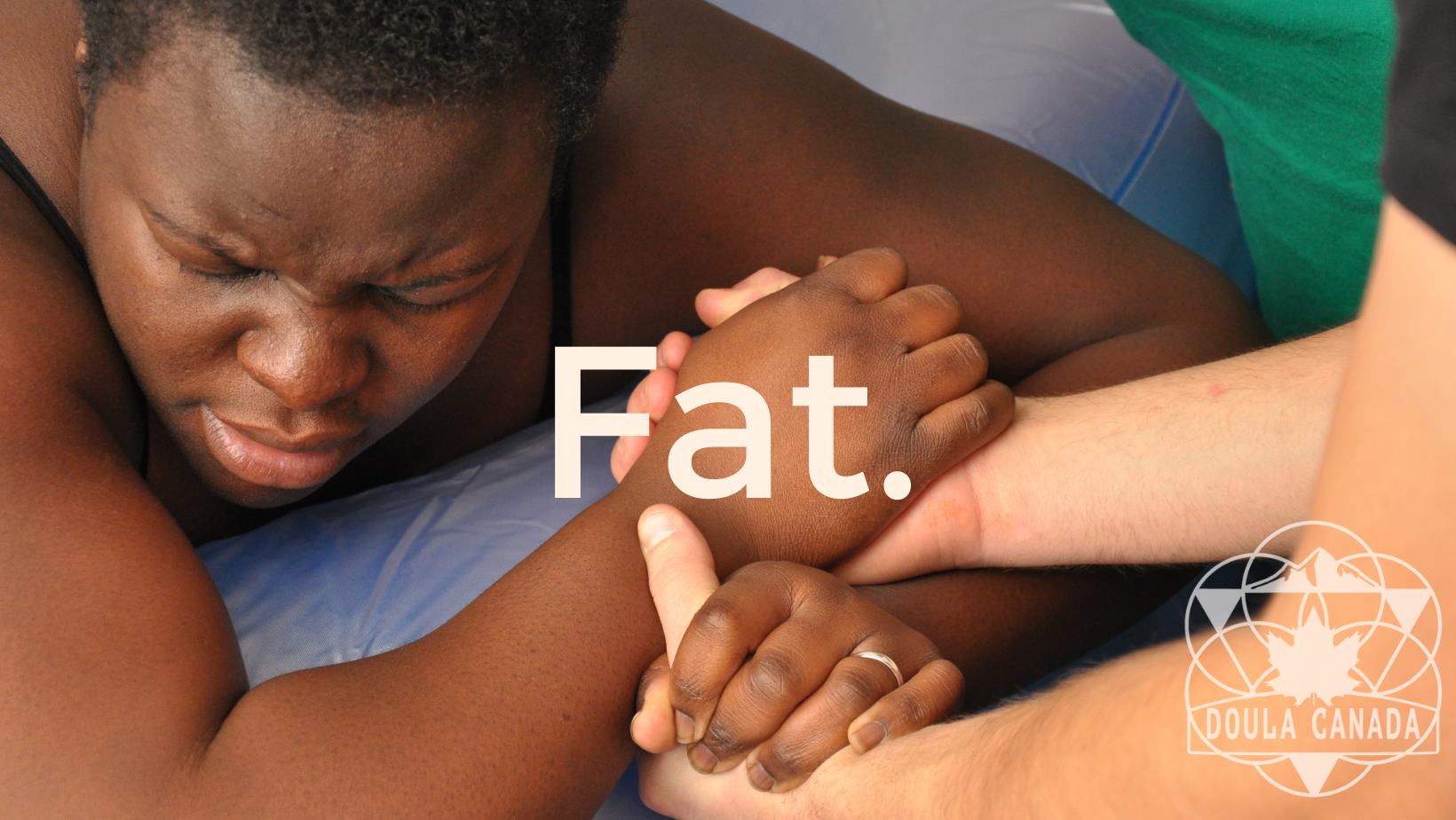
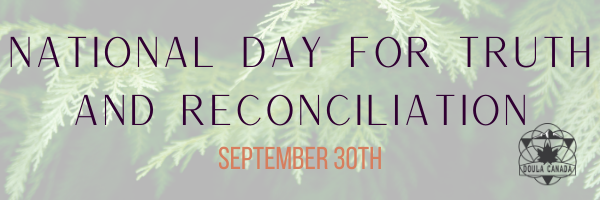
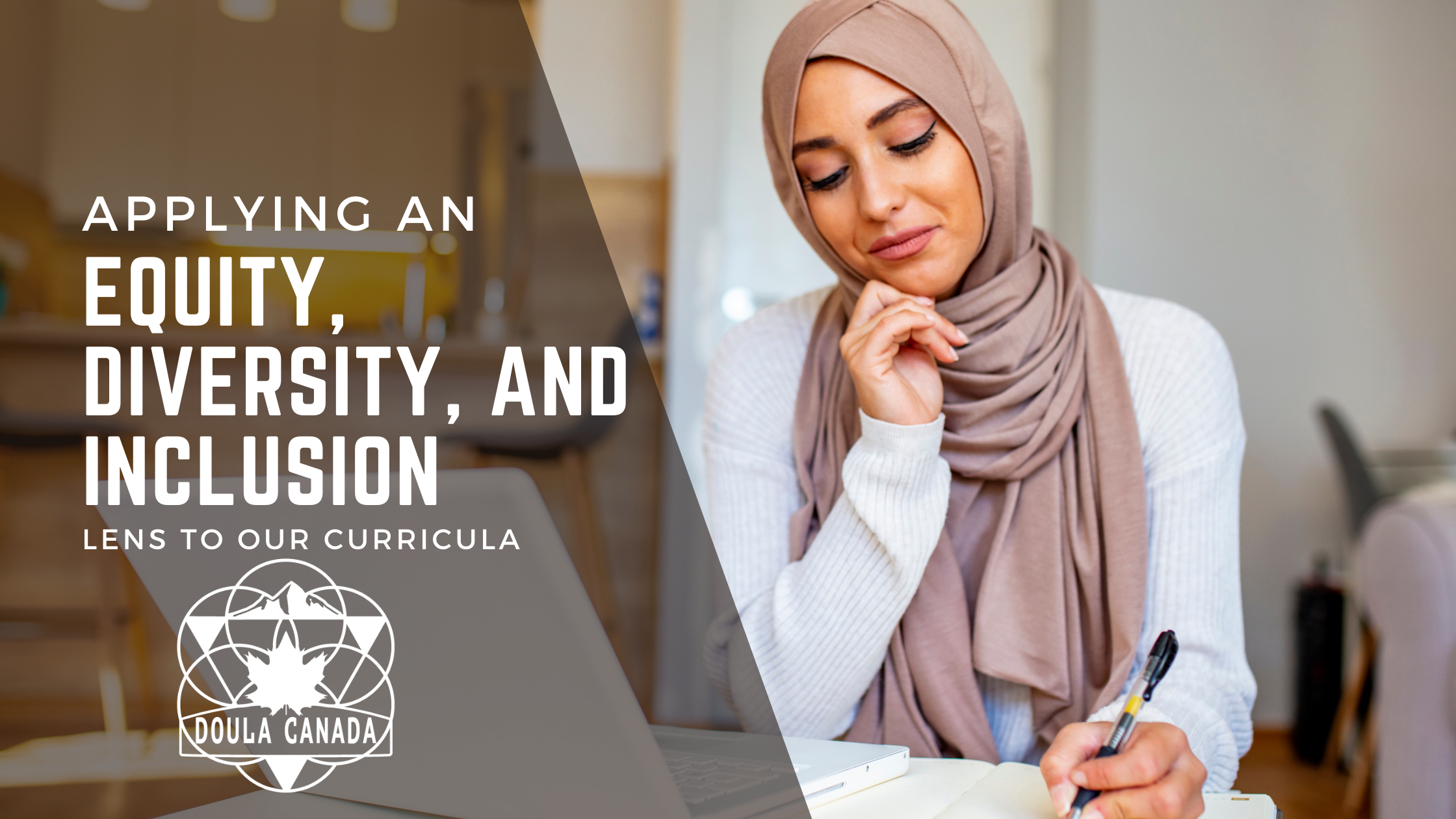
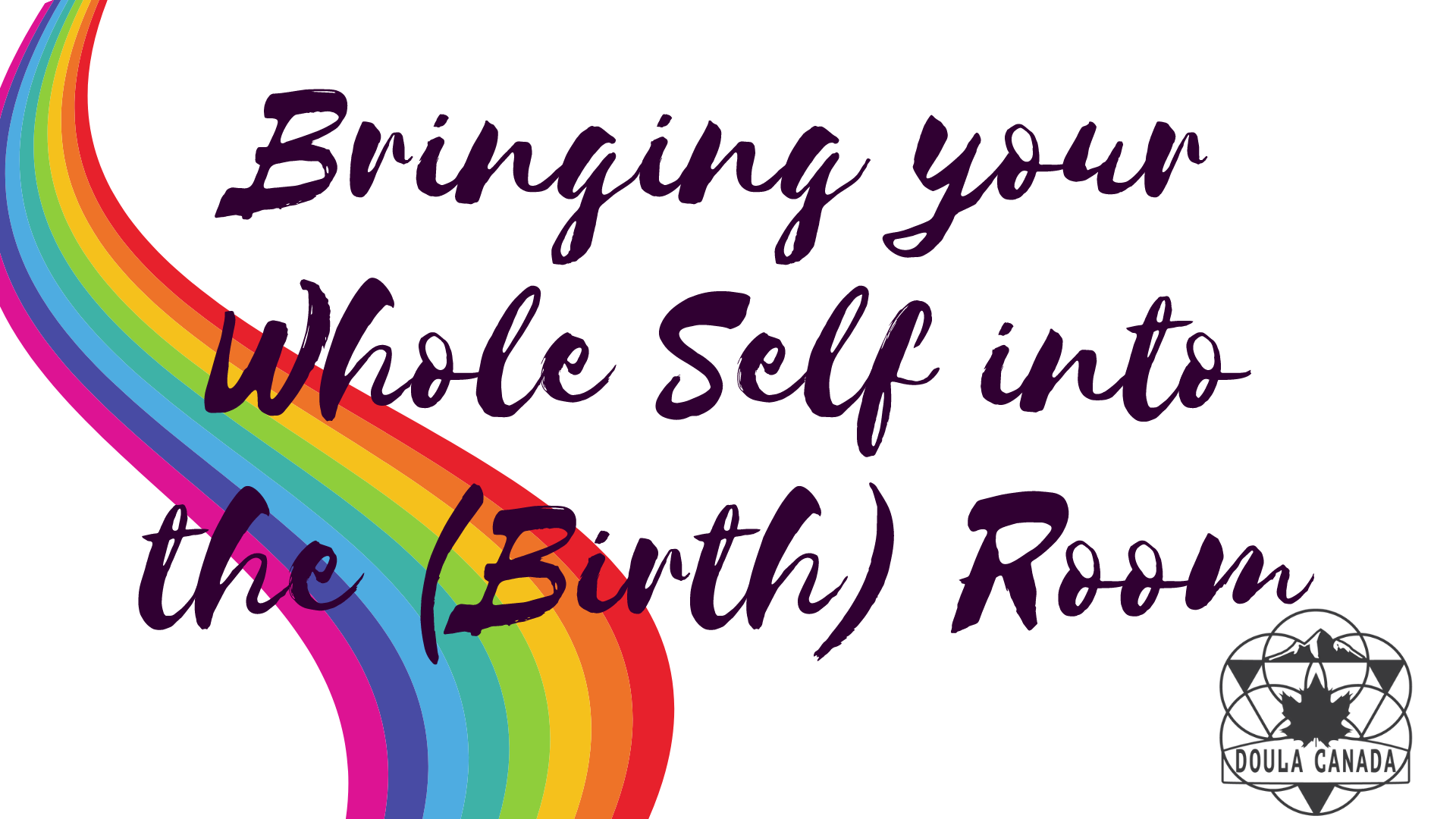

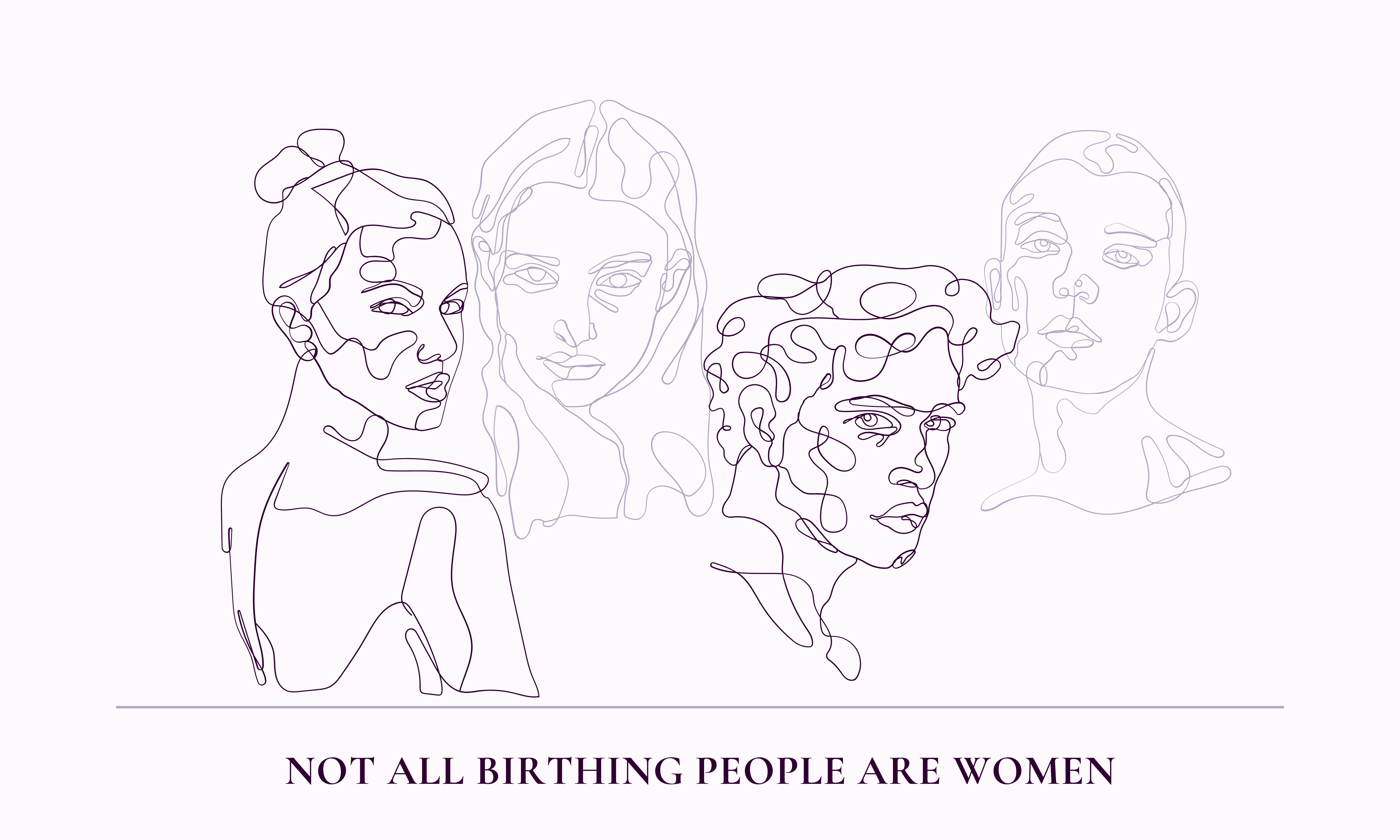

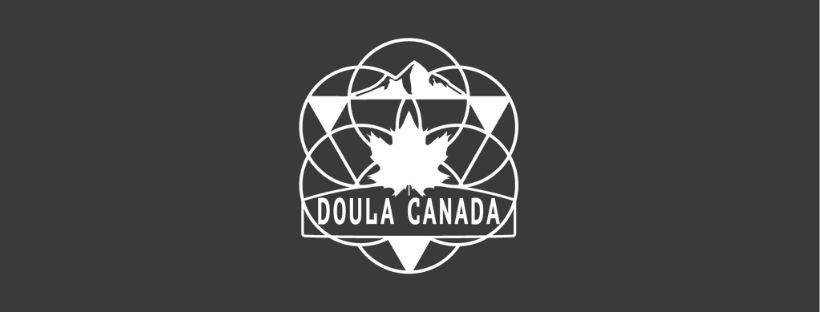
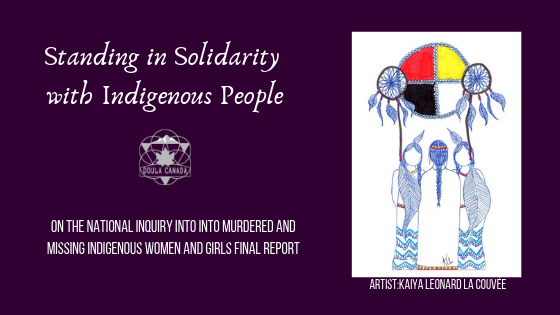
 [/vc_column_text][mk_padding_divider][/vc_column][/vc_row][vc_row][vc_column][vc_column_text css=”.vc_custom_1560260682164{margin-bottom: 0px !important;}”]Doula Training Canada’s Indigenous Doula Consultant Miranda reflects on the release of the Murdered and Missing Indigenous Women and Girls Inquiry report and how we as citizens of Canada, and birth professionals can work towards self reflection and change. [/vc_column_text][mk_padding_divider size=”12″][/vc_column][/vc_row][vc_row][vc_column][vc_column_text css=”.vc_custom_1560260346551{margin-bottom: 0px !important;}”]
[/vc_column_text][mk_padding_divider][/vc_column][/vc_row][vc_row][vc_column][vc_column_text css=”.vc_custom_1560260682164{margin-bottom: 0px !important;}”]Doula Training Canada’s Indigenous Doula Consultant Miranda reflects on the release of the Murdered and Missing Indigenous Women and Girls Inquiry report and how we as citizens of Canada, and birth professionals can work towards self reflection and change. [/vc_column_text][mk_padding_divider size=”12″][/vc_column][/vc_row][vc_row][vc_column][vc_column_text css=”.vc_custom_1560260346551{margin-bottom: 0px !important;}”]